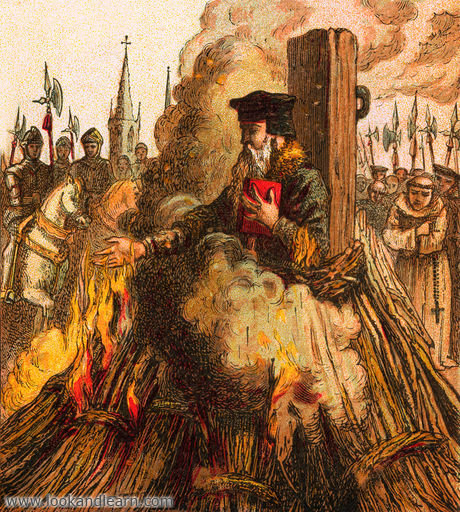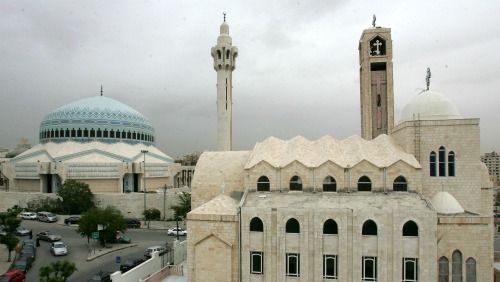9th July 2014
Ramadan: A Time to Reflect
The pace and rhythm of life in Amman has changed now that we are in Ramadan. Many non-Muslims prefer to take their holidays at this time. But just as Muslims are fasting to achieve greater self-awareness, so others can use this month to reflect.
Commenting on religion is risky, so a diplomat should tread with extreme care. Religion is a massive source of good, guiding people in their daily lives and inspiring compassion and understanding for others. Some of the most beautiful buildings in the world, cathedrals, mosques, synagogues and temples are testament to the power faith.
But looking round the world, it is distressing to see how often religion is distorted to inspire hatred and violence.
This distortion isn’t new. History is littered with the corpses of people killed in the name of religion. The Crusades were launched in the 12th century as a “just war”, though they led to terrible suffering. In 16th century England, both Catholics and Protestants suffered horrible deaths for their faith. The Thirty Years War in Europe in the 17th century caused the deaths of almost 10 million people.
Discrimination and persecution on religious grounds continues in modern times. The transfer of populations between India and Pakistan on independence in 1947 is an example. The wars in the Balkans in the 1990s showed how ethnic and religious divisions can be conflated for political purposes.
This year we have seen religion being abused in different ways, eg to justify the kidnap of Christian girls by Boko Haram in Nigeria. The Muslim extremists in Syria and Iraq have persecuted those who do not accept their doctrine, culminating in the declaration of the Caliphate of the Islamic State last week. And in Jerusalem, the crucible of three great religions, the status quo at Al-Aqsa mosque is at risk.

Religious extremists are characterised by the poison of bigotry. They are prepared to commit atrocities, including sending their own followers to commit suicide, often killing people who belong to their own religion, as happened in the Amman hotel bombings in 2005. But is their motivation purely religious or are they using it as a cover for seeking land, money and power?
What they lack is tolerance: the ability to respect and accept the views of others. These extremists believe that they have a monopoly on truth which they use to justify the crimes that they commit against their innocent victims. The concepts of brotherhood, understanding, mercy and forgiveness are not part of their vocabulary.
These concepts were part of the Amman Message, launched by HM King Abdullah in November 2004 and endorsed by the United Nations General Assembly in 2010. The message underlines the core values of Islam: tolerance, compassion, mutual respect, acceptance and freedom of religion. It recognises the rich diversity of practices within Islam but also the common values with other religions.
We should celebrate these common values: the desire for justice, fairness and personal dignity that unites all faiths. We should insist on freedom of religion as a basic human right and vigorously combat religious intolerance. And we should encourage interfaith dialogue as a way to promote mutual understanding.
Does tolerance mean simply turning a blind eye to the demands of others? Should tolerance extend to those who preach hatred, revenge and the use of violence? Obviously not. In a strong, fair, confident society tolerance should not mean overlooking instances where religion is used as a cloak for dogmatism and enmity. There must be a limit to tolerance where extremists use violence to impose their will.
Tolerance is at the heart of the religious freedom and understanding that Jordan enjoys as part of its inherent stability. During Ramadan it is worth recalling one of the verses from the Quran: “There shall be no compulsion in religion.”

A great article indeed. Indeed very inspiring!
Dear Peter ,
pls. allow me to start these little few lines of mine by picking-up yr. last 2 sentences for they keep telling us maybe more as 1.001 words would do so.
It should be sthg. like granted that “TOLERANCE” (& RESPECT!) are at the heart of every kind of religion and “religious freedom “.
This might also be one of several reasons why Jordan itself enjoys this inherent stability and increasing prosperity. So Ramadan might be a good time to think & reflect ´bout such facts.
By the way : thank ´s for the nice pics. !
” 1 month of Ramadan, 4 weeks of barkaat , 30 days of forgiveness , 720 hours of guidance , 43200 minutes of purification, 2592000 seconds of Noor “.
(Inscription on the Blue Mosque in Istanbul )
Best wishes & peaceful days , liebe Grüßle ond a friedliche Zeit ,
Ingo-Steven, Stuttgart